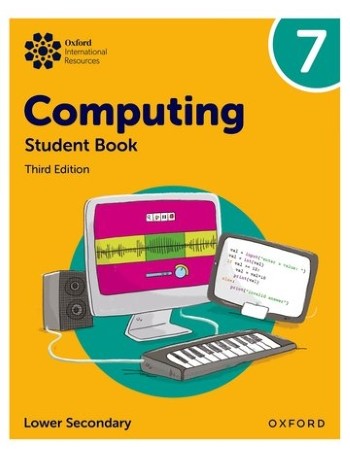
OXFORD INTERNATIONAL LOWER SECONDARY COMPUTING: STUDENT BOOK 7 (ISBN: 9781382047234)
RM94.50
Ex Tax: RM94.50
- Stock: In Stock
- Manufacturer: Oxford University Press
- Weight: 0.50kg
- ISBN: 9781382047234
This comprehensive, nine-year course follows a spiral approach where students' learning builds year-on-year, with increasing complexity and depth. Through real-life contexts and project-based activities, students are equipped with vital computing skills for their future studies and beyond.Features
An activity-based approach to engage students and embed learning
Encourages students to work safely and respectfully with technology
Practice in language-based coding prepares students for the careers of the future
A focus on HTML and Javascript supports web development skills
Case studies engage students by using examples from the real world
Builds on coverage of future-facing concepts such as robotics, VR, AI, and machine learning
Highlights cross-curricula connections through 'Think Maths' and 'Think Science' features
'Test' boxes help students review content, supporting them with exam readiness
